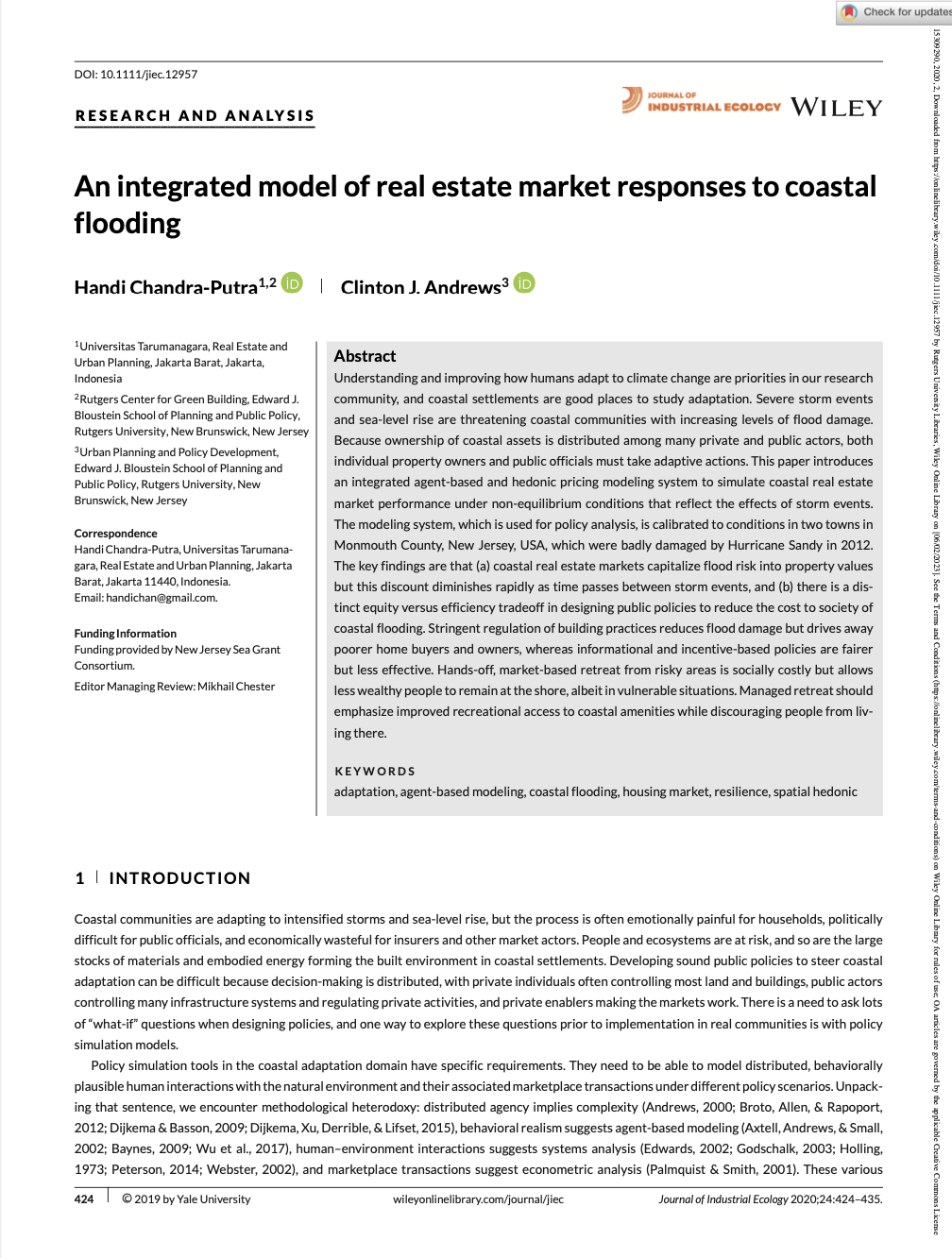Understanding and improving how humans adapt to climate change are priorities in our research community, and coastal settlements are good places to study adaptation. Severe storm events and sea-level rise are threatening coastal communities with increasing levels of flood damage. Because ownership of coastal assets is distributed among many private and public actors, both individual property owners and public officials must take adaptive actions. This paper introduces an integrated agent-based and hedonic pricing modeling system to simulate coastal real estate market performance under non-equilibrium conditions that reflect the effects of storm events. The modeling system, which is used for policy analysis, is calibrated to conditions in two towns in Monmouth County, New Jersey, USA, which were badly damaged by Hurricane Sandy in 2012. The key findings are that (a) coastal real estate markets capitalize flood risk into property values but this discount diminishes rapidly as time passes between storm events, and (b) there is a dis- tinct equity versus efficiency tradeoff in designing public policies to reduce the cost to society of coastal flooding. Stringent regulation of building practices reduces flood damage but drives away poorer home buyers and owners, whereas informational and incentive-based policies are fairer but less effective. Hands-off, market-based retreat from risky areas is socially costly but allows less wealthy people to remain at the shore, albeit in vulnerable situations. Managed retreat should emphasize improved recreational access to coastal amenities while discouraging people from liv- ing there.
An integrated model of the real estate market responses to coastal flooding
Citation:
Chandra-Putra, H., and C.J. Andrews. 2020. An integrated model of the real estate market responses to coastal flooding. Journal of Industrial Ecology, 24: 424–435. DOI:10.1111/jiec.12957
